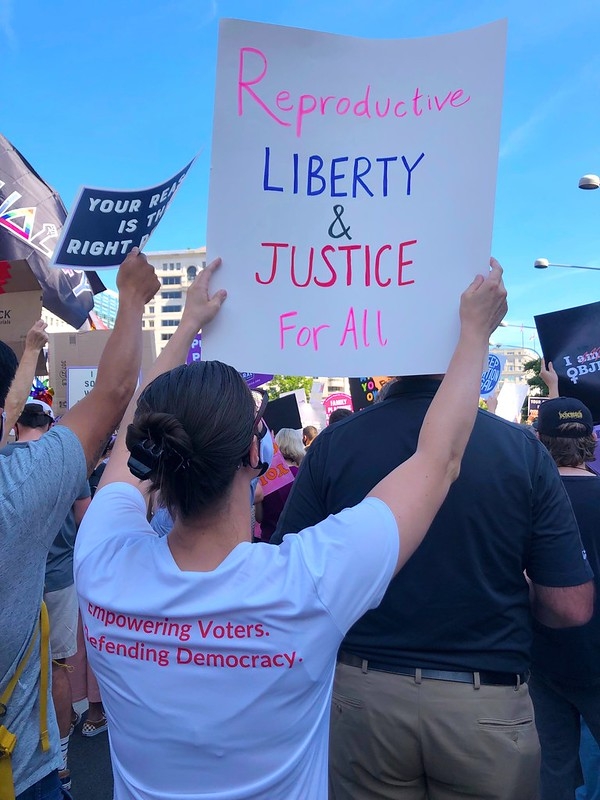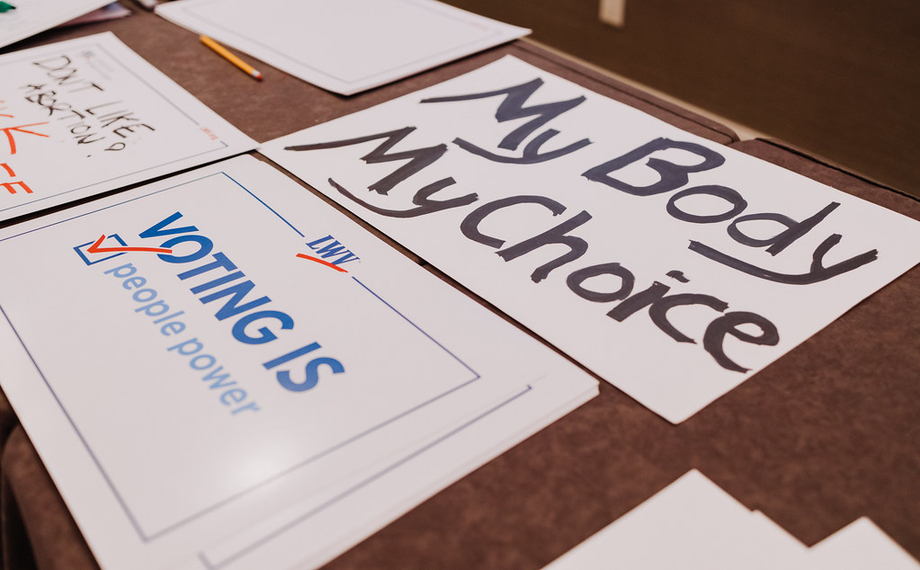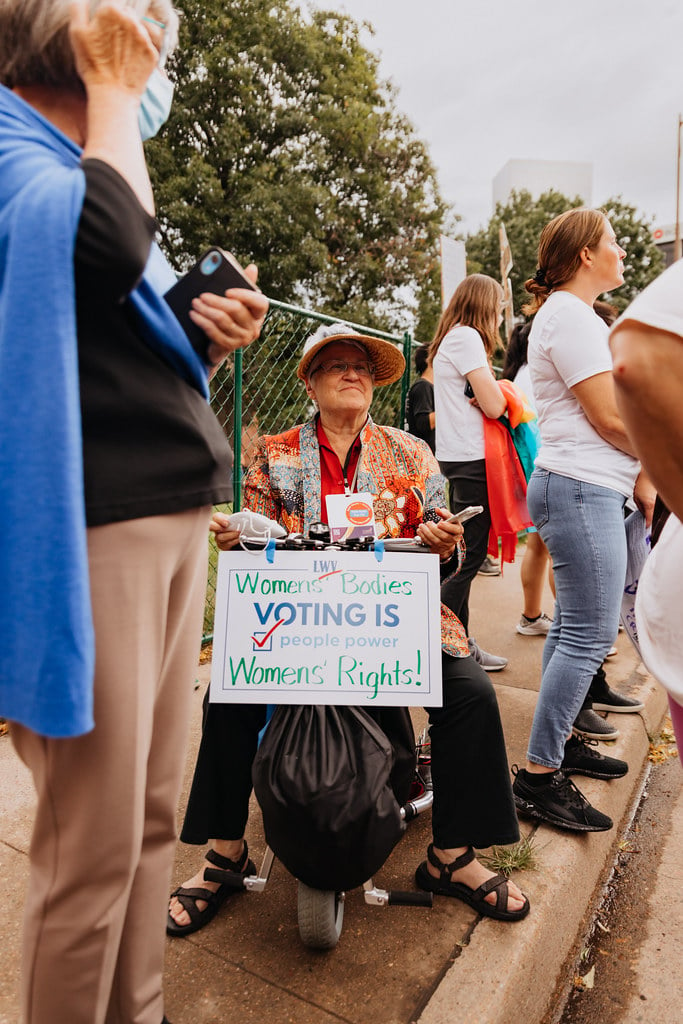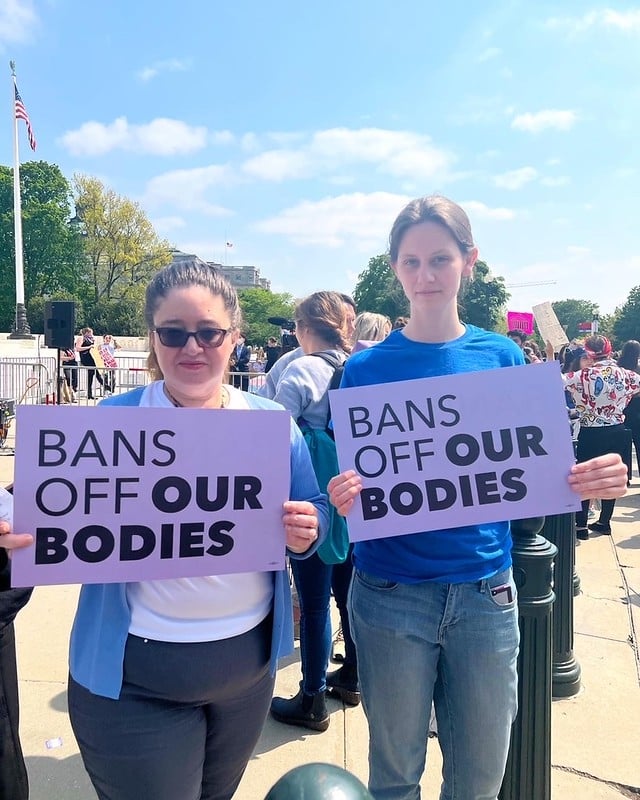This blog was written by former advocacy intern Caroline Segal.
The right to contraception is currently protected in the United States by a combination of federal court cases and state legislation. Tens of millions of women and other people of reproductive age rely on contraception to make decisions about their bodies and lives. However, in recent years, government attacks on reproductive freedom have made it clear how our fundamental rights can be eroded and taken away, making additional state and federal protections for contraception imperative.
,
Stay Updated
Keep up with the League. Receive emails to your inbox!
,
At the state level, states with and without abortion bans and restrictions can secure the right to contraception through protective state laws and constitutional amendments. At the federal level, the US Congress can codify the right to contraception. Likewise, Congress and the Executive Administration can ensure that the Title X Family Planning Program (Title X) can support the provision of affordable, preventative health care, including contraception, through sufficient funding and inclusive regulations.
Contraception Use in the US
Contraception, the act of preventing pregnancy through devices, medication, procedures, or behaviors, is widely used in the United States. In 2018, 65% of the 72.7 million women of reproductive age in the US were using a contraceptive method, and over 99% of sexually active women aged 15-44 had used a contraceptive at least once in their lives.
,

,
There is a strong link between increased access to contraceptive services, especially publicly funded services, and the reduction of unintended pregnancies. According to the Brookings Institution, more than 95% of unintended pregnancies occur among the 32% of women who use contraceptives inconsistently or not at all; in other words, those who use contraceptives consistently only make up 5% of unintended pregnancies. Further, a 2014 study found that the rates of unintended pregnancy, unplanned birth, and abortion each would have been 68% higher without publicly funded contraceptive services, including clinics funded by Title X.
The Benefits of Contraception Access
Sufficient access to contraception is necessary for people to participate fully in society and for their educational, economic, and physical well-being.
Scientific studies reviewed by the Institute for Women’s Policy Research find that increased access to contraception "positively impact[s] women’s high school graduation rates, educational attainment, occupation, earnings, and mortality.” The impact on women’s quality of life – including their ability to participate in civic life – is part of why the right and access to contraception are essential to democracy.
,
,
The Legal Right to Contraception in the US
In 2022, the US Supreme Court ruled in Dobbs v. Jackson Women’s Health Organization, overturning Roe v. Wade and ending the federal constitutional right to abortion. This decision gave the states the power to decide if and under what circumstances abortion would be legal.
As of May 2025, 13 states had total abortion bans, and seven states had bans in the first 18 weeks of pregnancy. In these states, contraception has increasingly become a battleground for reproductive freedom; research shows that one year after the Dobbs decision, states with total abortion bans had a 5.6% greater decrease in fills for oral contraceptive pills relative to states without
,

,
The right to contraception is protected by the US Supreme Court decision Griswold v. Connecticut, which prevents states from making the use of contraception by married couples illegal. Eisenstadt v. Baird went beyond Griswold, extending the right to unmarried people.
While these decisions still stand, the Supreme Court’s ruling in Dobbs threatens contraception. In their dissenting opinion, Justices Stephen Breyer, Elena Kagan, and Sonia Sotomayor wrote that Dobbs could threaten Griswold because they are “part of the same constitutional fabric, protecting autonomous decision making” in one’s personal life. In his concurring opinion, Justice Clarence Thomas wrote that the Court should reconsider Griswold.
State Protections of Contraception
Given that no federal legislation protects the right to contraception, state laws play a significant role in its preservation. They would be all the more vital if Griswold were eroded or overturned.
,
,
As of May 2024, 14 states and the District of Columbia had secured legislative or constitutional protections for the right to contraception. Colorado, Florida, Illinois, Massachusetts, Minnesota, New Jersey, New Mexico, Oregon, Rhode Island, Washington, and the District of Columbia had passed legislation protecting the right to contraception. Meanwhile, California, Michigan, Ohio, and Vermont have enshrined the right to contraception in their state constitutions — an even stronger form of protection.
In some states with total abortion bans, there have been legislative efforts to explicitly protect access to contraception. Tennessee passed a law that requires health insurance to cover up to a 12-month supply of prescription contraceptives. Idaho passed a similar law requiring insurance coverage of up to a six-month supply of prescription contraceptives.
,

,
State Restrictions on Contraception
There have also been various attempts by states to restrict contraception access. According to the Guttmacher Institute, eight state legislatures have attempted to limit contraceptive access since the beginning of 2024. Several bills have targeted intrauterine devices (IUDs) and emergency contraception (i.e., Plan B), making false claims that they cause abortions.
An Opportunity to Protect Contraception Federally
At the federal level, Congress has introduced the Right to Contraception Act, which would protect an individual’s right to obtain contraception and a health care provider’s right to provide contraception services. The League of Women Voters of the United States endorsed the bill.
,
,
In the 118th session of Congress (2023-2024), Senate leadership filed a motion to end debate to take this bill for a floor vote, but it was blocked by a filibuster. It was never brought up for a vote in the House of Representatives. In the 117th session of Congress (2021-2022), the bill was passed by the House with bipartisan support, but it was never brought up for a vote in the Senate.
Federally Funded Contraception: Title X
Established in 1970, Title X is a federal grant program supporting family planning and preventative reproductive health care for millions of people, including those with low incomes, without insurance, or living in rural areas. The program, administered by the US Department of Health and Human Services (HHS), awards grants to public and private nonprofit health clinics, which use a sliding-fee scale. Title X funding cannot be allotted for abortion services.
,

,
In 2019, the Trump Administration implemented regulations, often referred to as “the domestic gag rule,” which prohibited Title X providers from referring patients for abortions under most circumstances and instituted physical separation requirements between abortion and other services. This put enormous financial burdens on clinics and led to nearly a third of reproductive health care centers withdrawing from the Title X program. In response, LWVUS joined with other reproductive health organizations to urge Congress to protect the Title X program and repeal the gag rule.
In 2021, President Biden directed HHS to repeal the domestic gag rule. The previous Title X regulations were reinstated, and the program was modernized to be more inclusive. As of 2023, the Title X network has over 4,100 sites, increasing from the 4,010 sites that existed before the 2019 gag rule.
In a post-Roe US, abortion bans and restrictions could pose a new challenge to health care clinics funded by Title X. To be granted Title X funding from HHS under current regulations, family planning providers are required to provide comprehensive counseling on pregnancy options, including abortion and referrals. However, some states have laws that prohibit this counseling from including abortion. If clinics in states with abortion bans or restrictions are forced to close because they can no longer comply with Title X regulations, access to contraception will be further limited.
,
,
The League of Women Voters and Contraception
The League of Women Voters of the United States (LWVUS) believes that every US resident should have access to a basic level of quality health care at an affordable cost, including reproductive health care. Further, LWVUS believes that public policy must affirm the individual's right to privacy in making reproductive choices.
LWVUS remains committed to advocating for reproductive choices and justice. A truly representative democracy depends on it.
What You Can Do
- Explore the League of Women Voters’ materials on reproductive justice
- Join your local League to support local and state initiatives to protect access to contraception and reproductive justice
- Learn more about reproductive justice and policies from organizations like:
- The Center for Reproductive Rights
- The Guttmacher Institute
- Kaiser Family Foundation (KFF)
- The National Women’s Law Center (NWLC)
- Planned Parenthood Federation of America (PPFA)